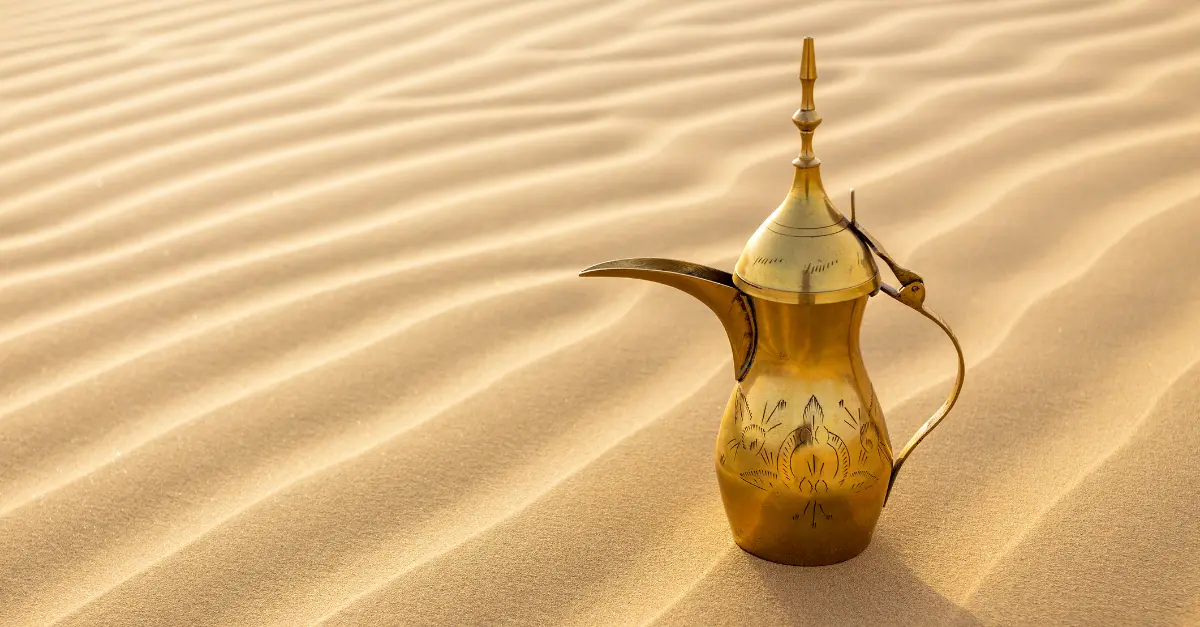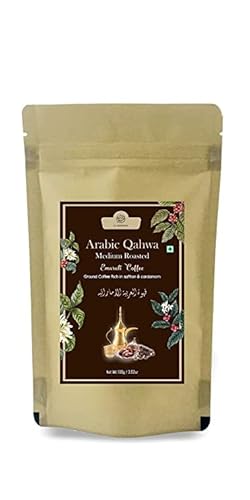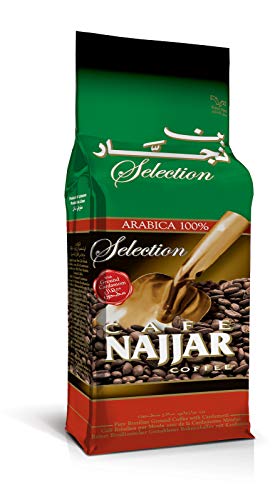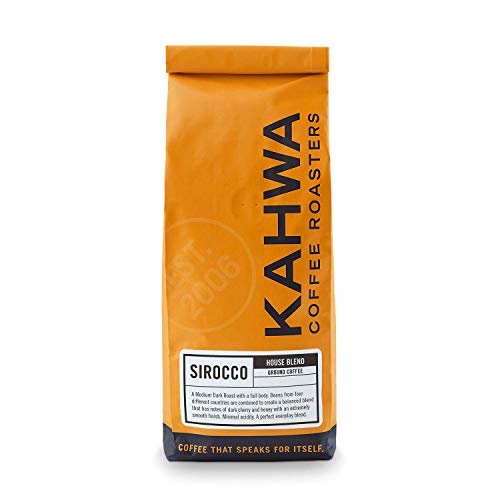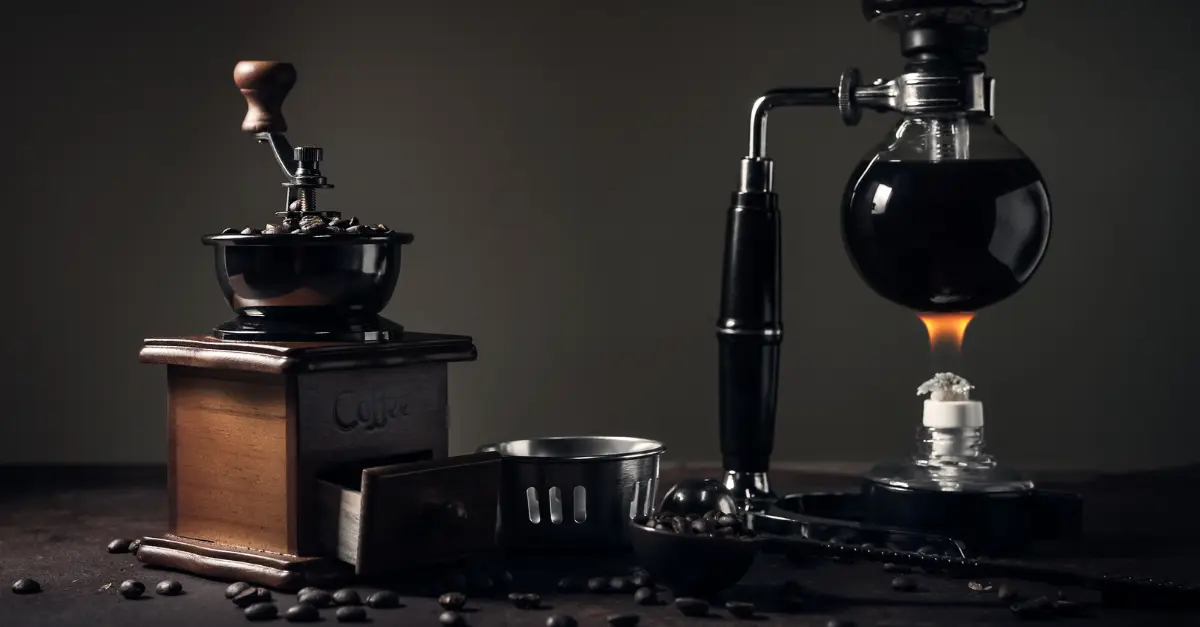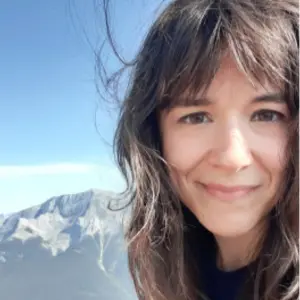Qahwa, also known as Arabic coffee or kahwa, holds a special place in Middle Eastern and Arab culture, representing more than just a beverage. It is a symbol of hospitality, tradition, and social gatherings. This traditional method of preparing coffee has a rich history that dates back centuries, originating in the Middle East and spreading its influence far beyond its birthplace.
A Brief History of Qahwa
The history of Qahwa, also known as Arabic coffee or kahwa, is a fascinating journey that begins with a legendary tale in the heart of Ethiopia. According to ancient folklore, a curious Ethiopian goatherd named Kaldi noticed an unusual change in his goats’ behavior after consuming a particular shrub’s red berries. Intrigued by this discovery, Kaldi tasted the berries and experienced newfound energy and alertness. This serendipitous encounter marked the birth of coffee consumption.
From Ethiopia, the knowledge of coffee spread to the Arabian Peninsula, where it found its true home in the region’s cultural fabric.
In the 15th century, Sufi monasteries in Yemen cultivated and used coffee. The drink gained popularity among the Sufi mystics, who found it helpful in staying awake during their nighttime devotions and spiritual rituals. Within these monasteries, the earliest forms of Qahwa were brewed and served, laying the foundation for its cultural significance.
As coffee’s popularity grew, so did the demand for its beans. Yemeni traders established a network of trade routes that facilitated the spread of coffee beyond Yemen’s borders. By the 16th century, the allure of Qahwa reached the holy cities of Mecca and Medina, becoming an essential part of Islamic religious gatherings and social events. The drink’s stimulating effects were seen as beneficial during long hours of prayer and religious ceremonies.
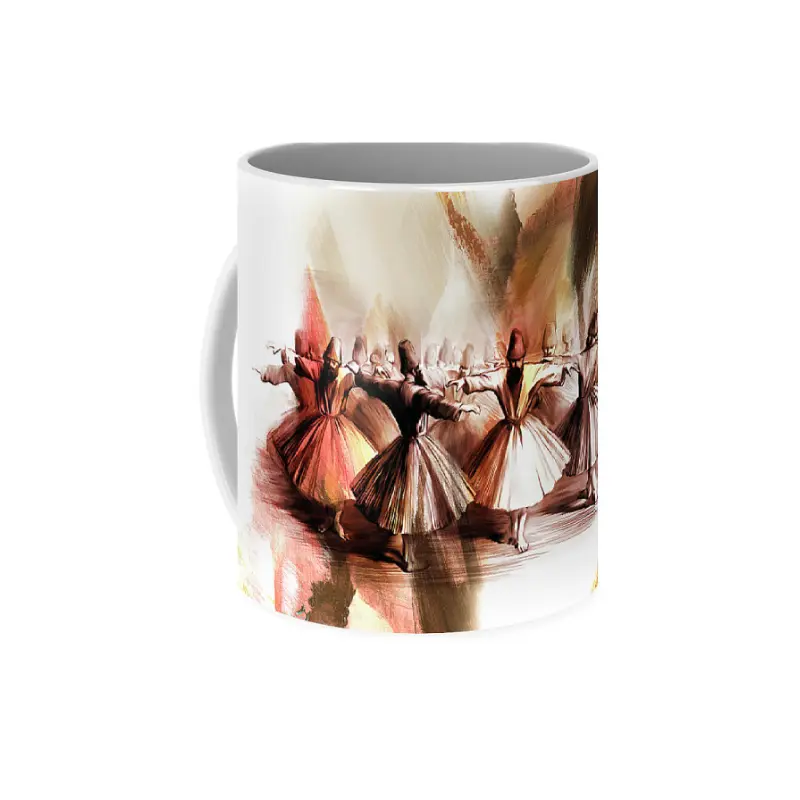
Qahwa’s reputation as a symbol of hospitality and a welcome gesture also played a crucial role in its widespread adoption. Across the Arab world, offering a cup of Qahwa to guests became a cherished tradition, reflecting the region’s deeply ingrained cultural values. The preparation and serving of Qahwa became an art form, with each country and household adding its unique touch to the brewing process. The coffee was traditionally roasted on the premises, ground, and then carefully brewed in a dallah, a traditional Arabic coffee pot.
Over time, Qahwa continued to captivate hearts and palates beyond the Arab world. The influence of this aromatic brew extended to the Ottoman Empire, where coffeehouses, known as “qahveh khaneh,” became popular social hubs, fostering intellectual and cultural exchanges. The Ottoman Turks embraced the art of Qahwa preparation and refined it further, adding cardamom and other spices to enhance its flavor.
In the 17th and 18th centuries, coffeehouses emerged in Europe, initially sparked by Ottoman influences. Coffee’s allure gradually spread throughout the continent, establishing coffeehouses in major European cities. The popularity of coffeehouses as centers of social interaction and intellectual discourse mirrored the role of Qahwa in Arab culture.
Today, Qahwa remains an integral aspect of Arab identity, cherished for its cultural significance and unique serving traditions. The aroma of freshly brewed Qahwa continues to waft through Arab households and social gatherings, fostering a sense of community and connection. Whether it is served during family gatherings, religious holidays, or important events, Qahwa has firmly entrenched itself as more than just a beverage—it is a symbol of warmth, hospitality, and the rich tapestry of Arab heritage.
From its mythical origins in Ethiopian folklore to its position as an enduring cultural icon in Arab societies, Qahwa’s journey is a testament to the power of a simple beverage to unite people and enrich their lives with shared traditions and cherished customs. As the legacy of Qahwa continues to evolve and adapt to modern times, it remains a treasured symbol of Arab hospitality and a testament to the enduring bond between coffee and the Arab world.
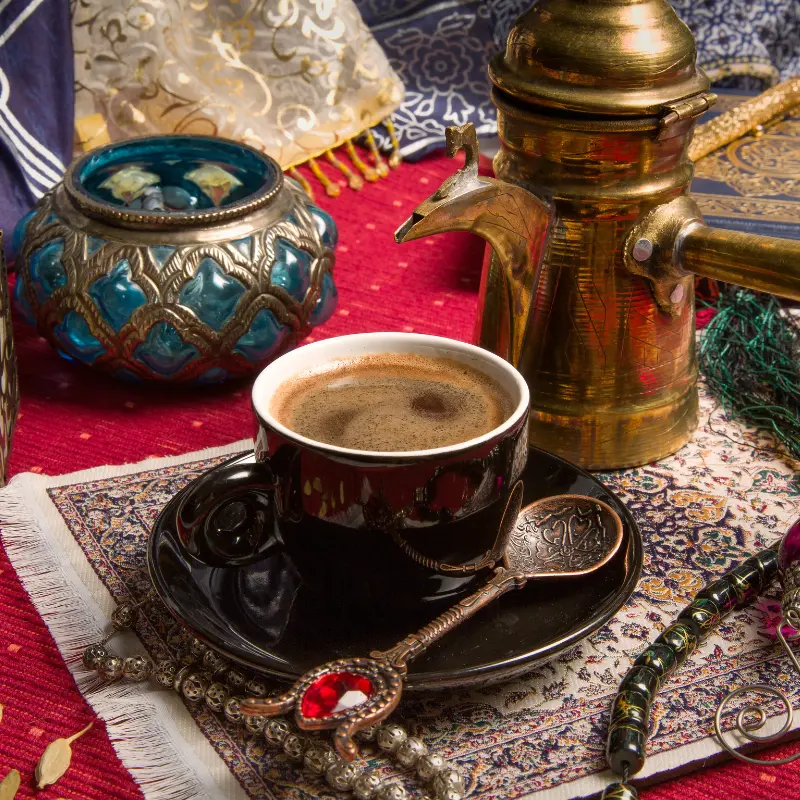
Featured Products
AL MASNOON EMARATI QAHWA Dark Roast
⭐ 4/5 • 💰 ~$51

AL MASNOON’s rich, aromatic dark roast features a perfect blend of saffron and cardamom.
Pros:
- Perfect blend of robust flavors
- Rich with aromatic saffron and cardamom
- Generously portioned 100 gram package
- Provides authentic Arabic coffee experience
Café Najjar Turkish Coffee with Cardamom
⭐ 4.3/5 • 💰 ~$13
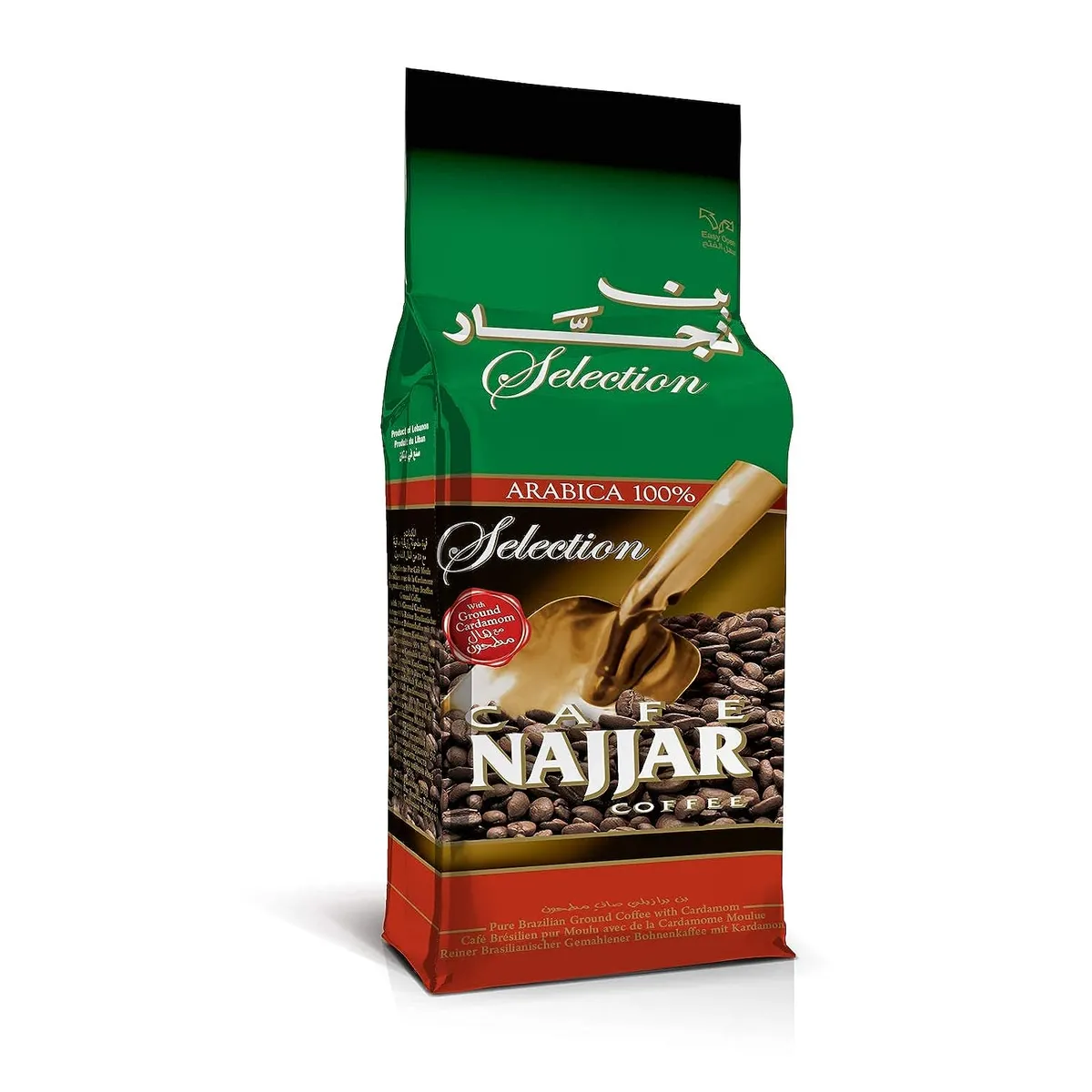
Café Najjar’s Turkish Coffee is a dark roast, Lebanese style coffee with Cardamom. It’s rich, robust, and works well with Turkish coffee machines.
Pros:
- Rich, robust flavor
- Made with 100% Arabica beans
- Works well with Turkish coffee machine
- Generous 450 gram package
- Includes Cardamom for unique taste
Kahwa Coffee Sirocco Medium Dark Roast Blend
⭐ 4.4/5 • 💰 ~$15
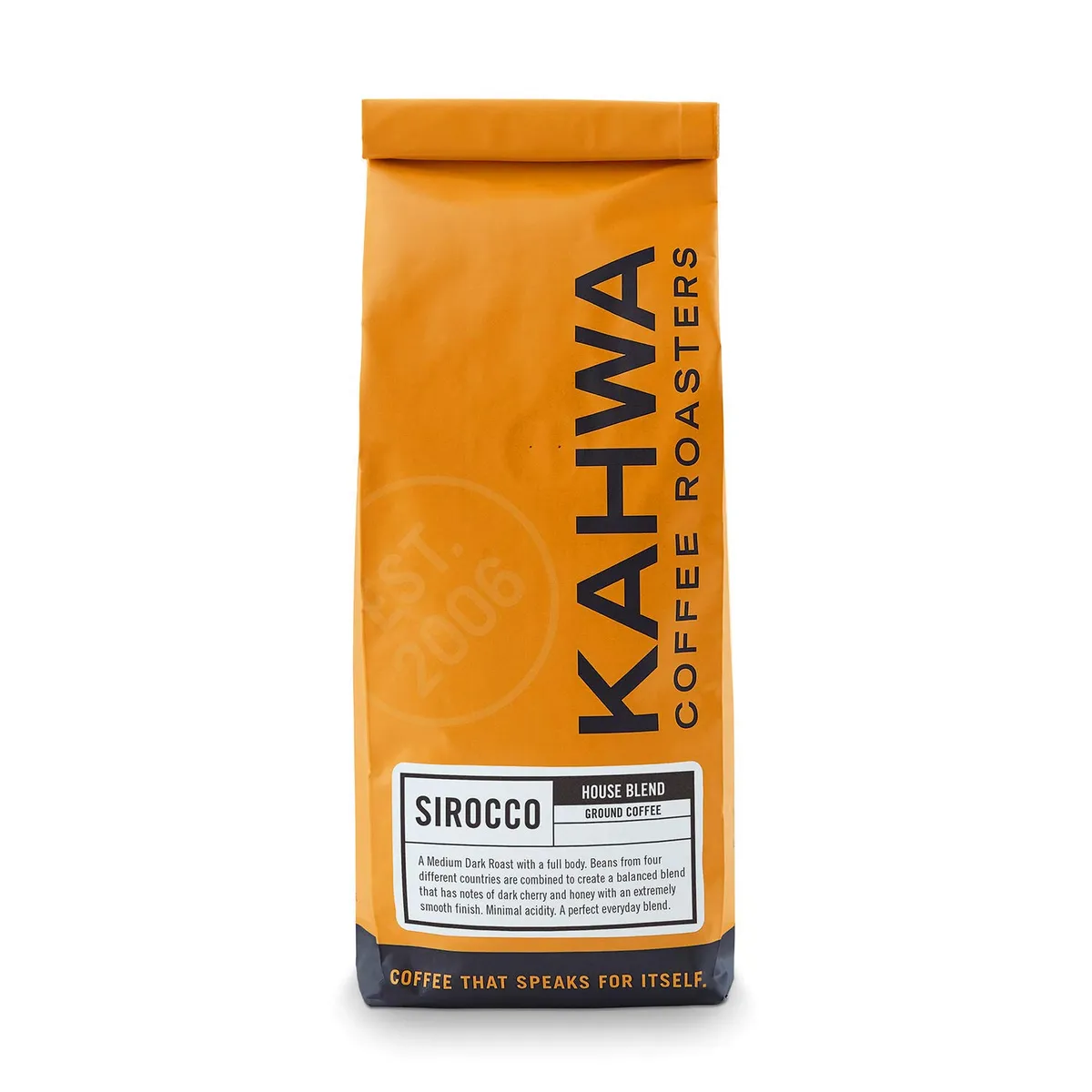
Kahwa Coffee’s Sirocco is a balanced medium dark roast blend, with notes of dark cherry and honey. Perfect for everyday use.
Key Features:
- Full-bodied coffee
- Beans sourced from four different countries
- Ground Coffee, 1 lb Bag
Pros:
- Medium dark roast provides balance in flavor
- Subtle notes of dark cherry and honey
- Extremely smooth finish
- Minimal acidity makes it easy on the stomach
- Great for everyday use
Saudi Coffee Mix
⭐ 4.8/5 • 💰 ~$24
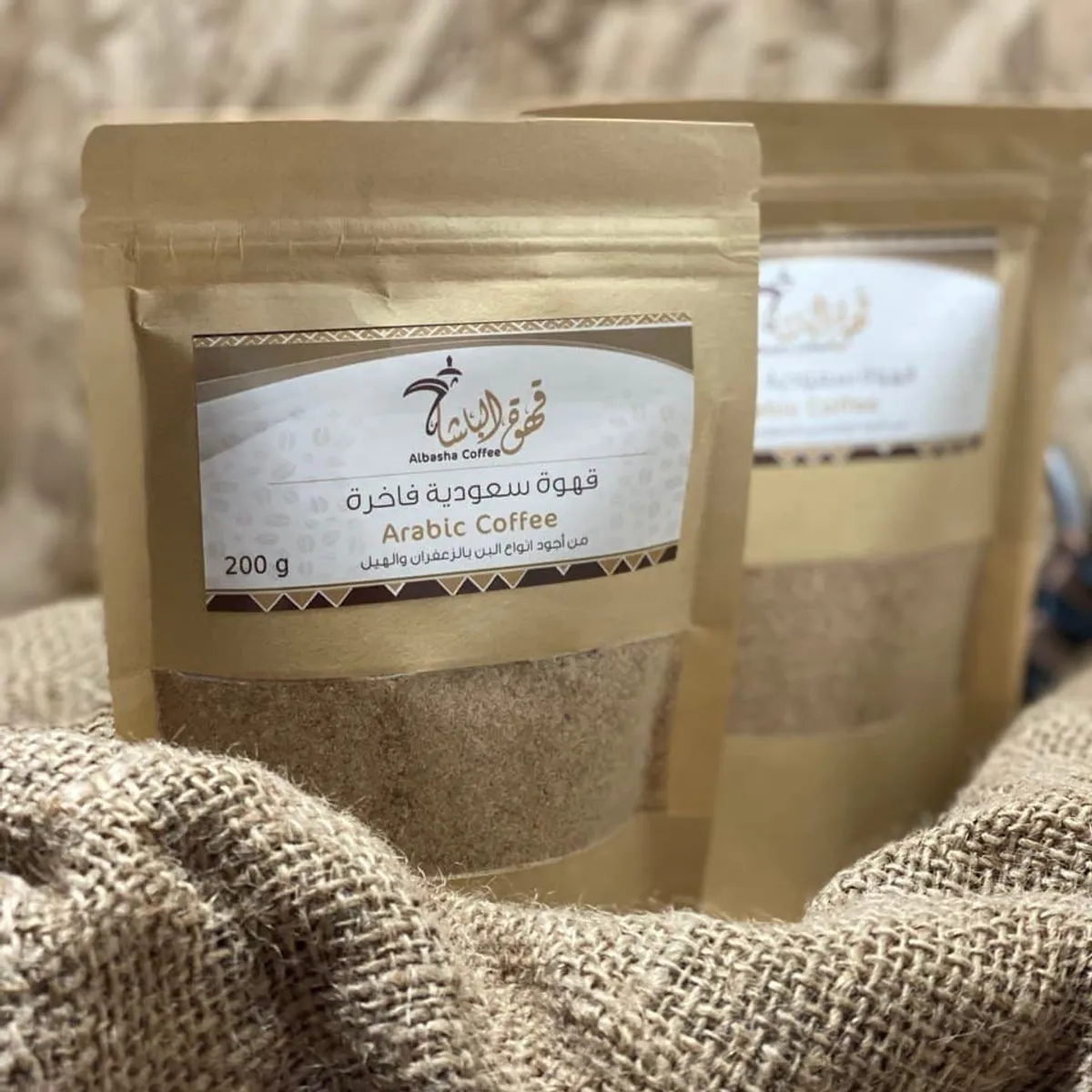
Premium Saudi coffee blend with saffron and cardamom
Pros:
- Made from high-quality ingredients
- Includes premium saffron and cardamom
Royal Organic Coffee with a Moroccan Twist
⭐ 3.9/5 • 💰 ~$24
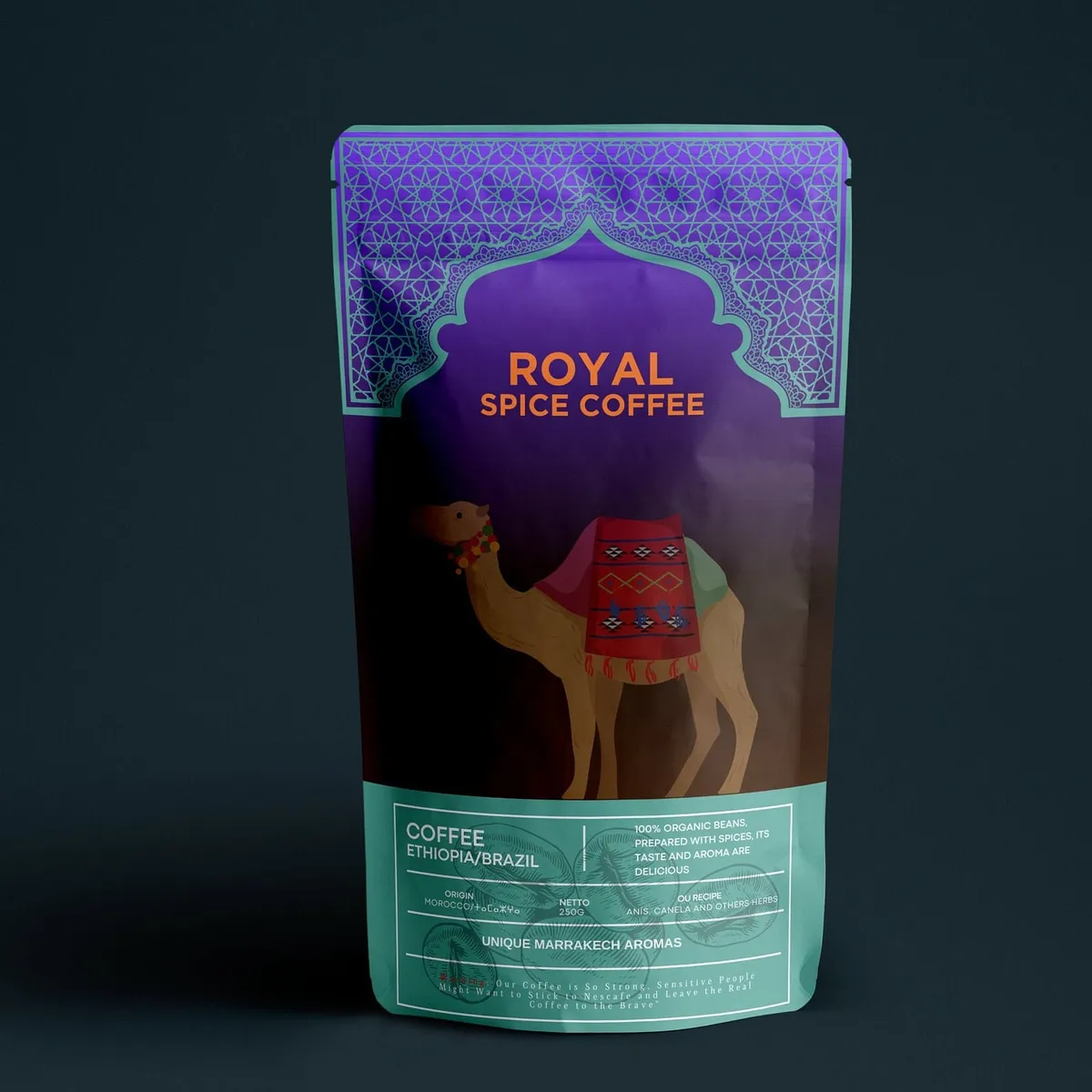
Organic coffee blend with authentic Moroccan spices. Aromatic and flavorful.
Key Features:
- Made with 100% organic coffee beans
- Enhanced with a special blend of spices
- Roasted in small batches for maximum freshness
Pros:
- Unique flavor and aroma
- Freshly roasted in small batches
- Free from harmful chemicals or additives
Elegant Arabic Thermos Flask
⭐ 4.1/5 • 💰 ~$76
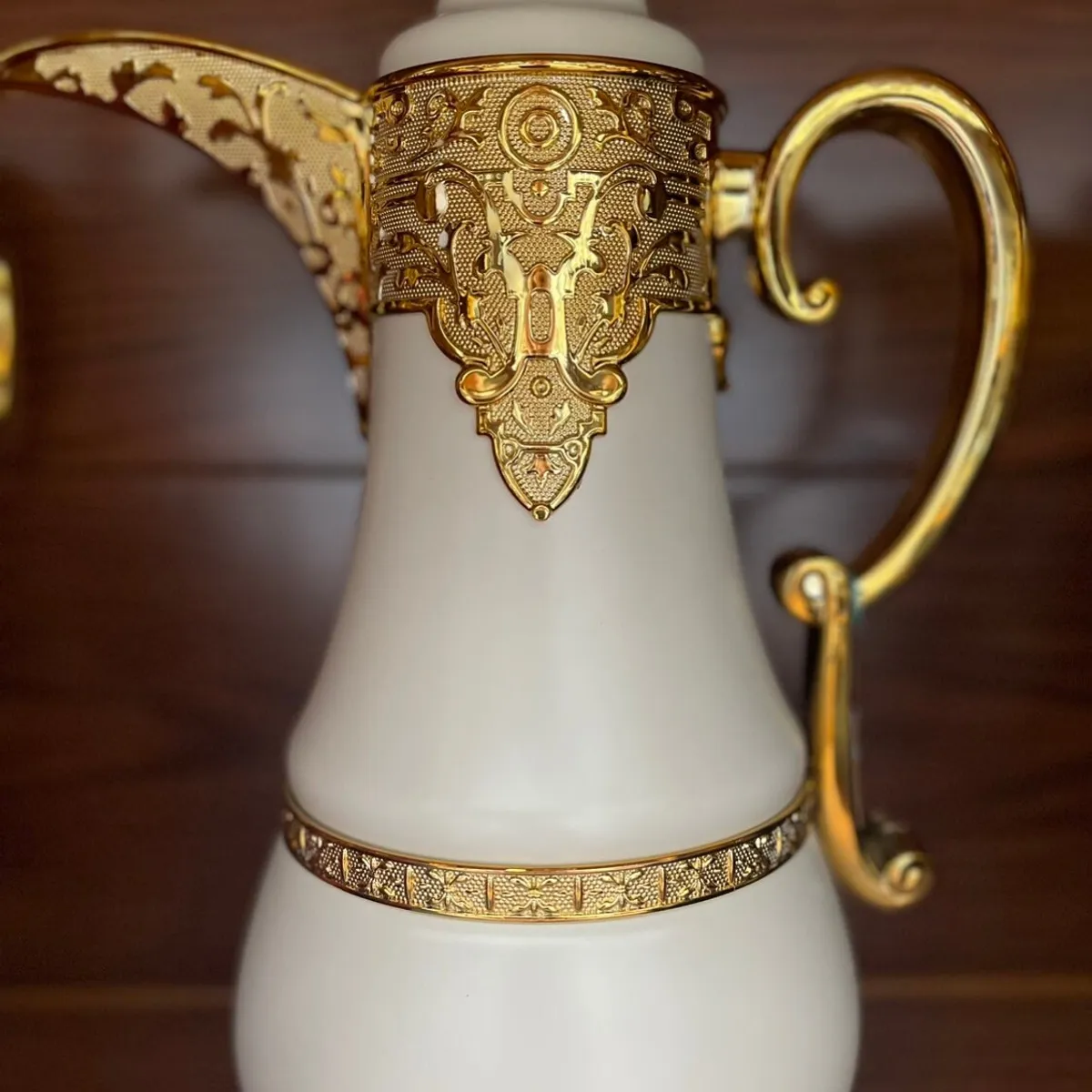
Turkish-themed thermos flask for keeping beverages hot.
Pros:
- Elegant design
- Turkish-themed colours
- Keeps beverages hot
Hand Painted Brass Coffee Pot - Arabic Dallah
⭐ 4.9/5 • 💰 ~$99
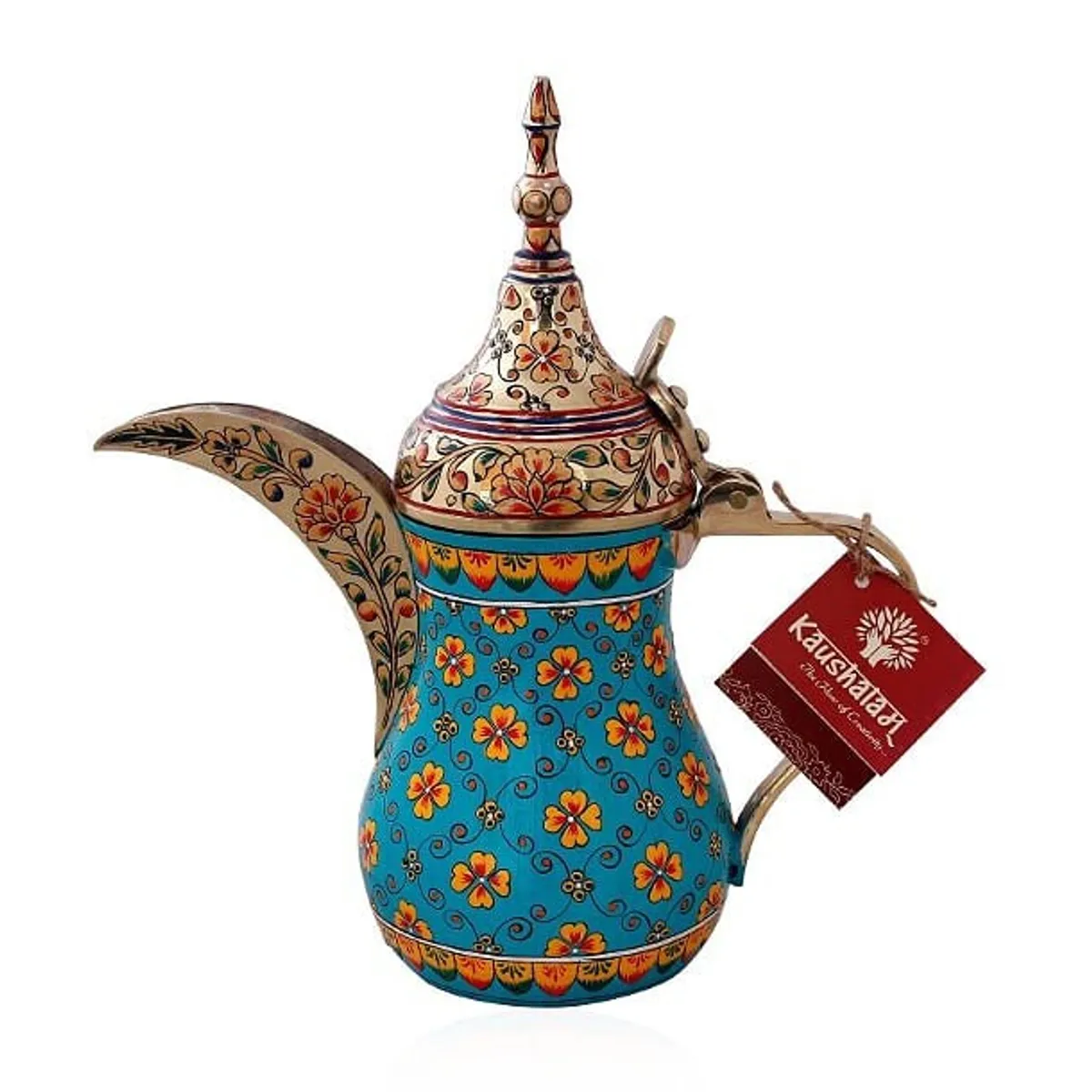
Hand-painted brass Arabic coffee pot featuring Mughal art form.
Pros:
- Hand painted
- Intricate Mughal art form
- Great for serving hot coffee, Kahwa, or tea
- Silver-plated inside
Arabian Design Gold Plated Coffee Pot
⭐ 4.2/5 • 💰 ~$150
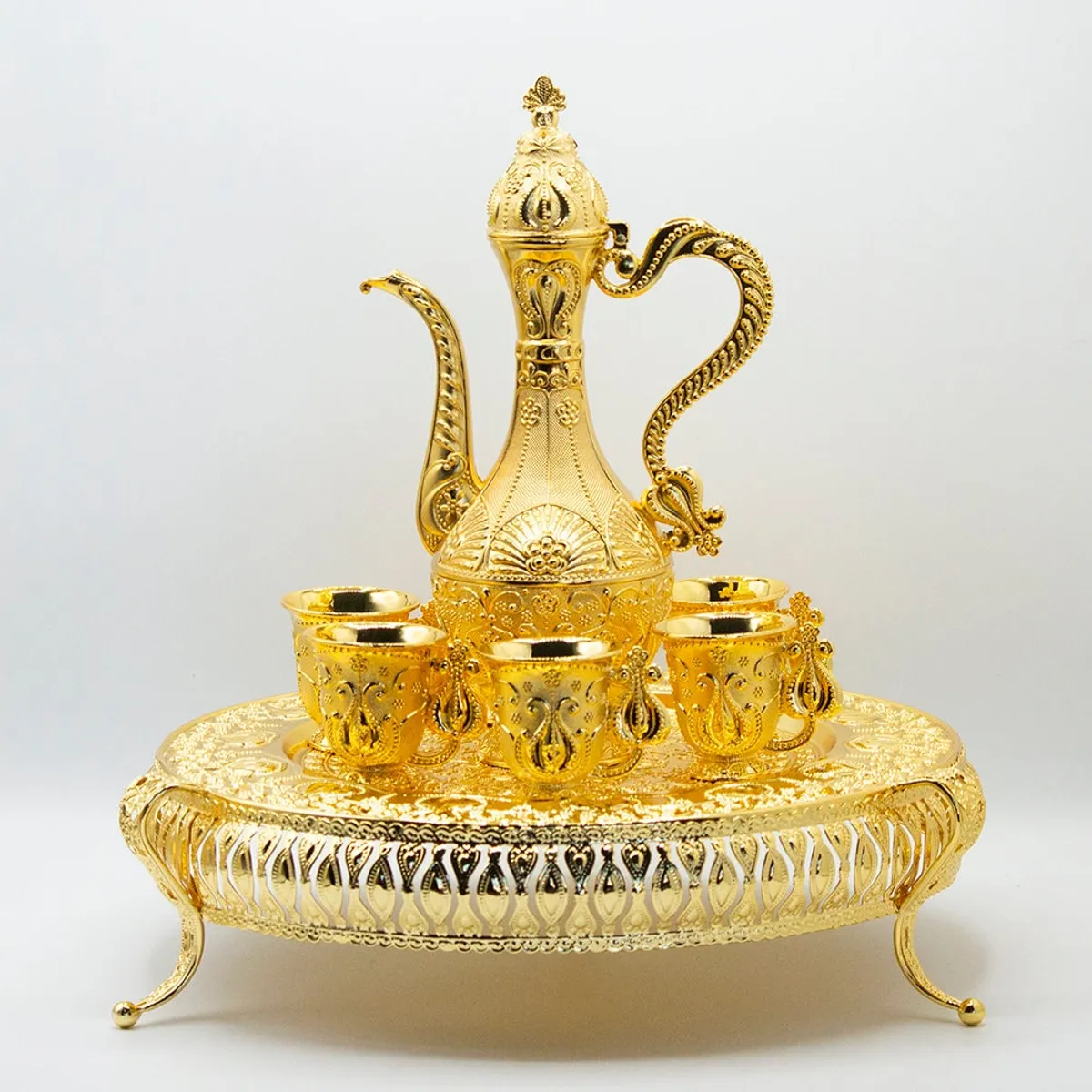
Middle Eastern gold plated 8 piece coffee & tea set and serving tray.
Pros:
- Functional for serving coffee or tea
- Great for decorative display
- Elegant design on each piece
- Luxurious style with colorful stones
Cultural Background of Qahwa
The cultural background of Qahwa, also known as Arabic coffee or kahwa, holds a significant place in Middle Eastern and Arab societies. Beyond being just a beverage, it embodies a sense of hospitality, tradition, and social connection. In Arab culture, offering a cup of Qahwa to guests is a deeply rooted tradition, symbolizing warmth and welcome. The preparation and serving of Qahwa have become an art form, and the ceremony of pouring the coffee from the dallah (traditional Arabic coffee pot) into small cups with no handles, known as finjān, has its etiquette. The process of pouring the coffee, with the sound signaling relaxation, enhances the sense of camaraderie during family gatherings and social occasions. Arabic coffee ceremonies are integral to significant events like religious holidays, including Ramadan and Eid, weddings, and other significant milestones. Serving Qahwa is a gesture of respect and a way to express appreciation for the presence of guests. The coffee is often accompanied by sweet treats such as dates or desserts, balancing its bitter flavor and creating a delightful culinary experience. Through generations, Qahwa has become deeply ingrained in Arab identity and continues to serve as a cultural link that connects people, transcending geographical boundaries. As the aroma of freshly brewed Qahwa continues to fill Arab households and gatherings, it fosters a sense of unity, reinforcing the importance of tradition, community, and shared values in Arab societies.
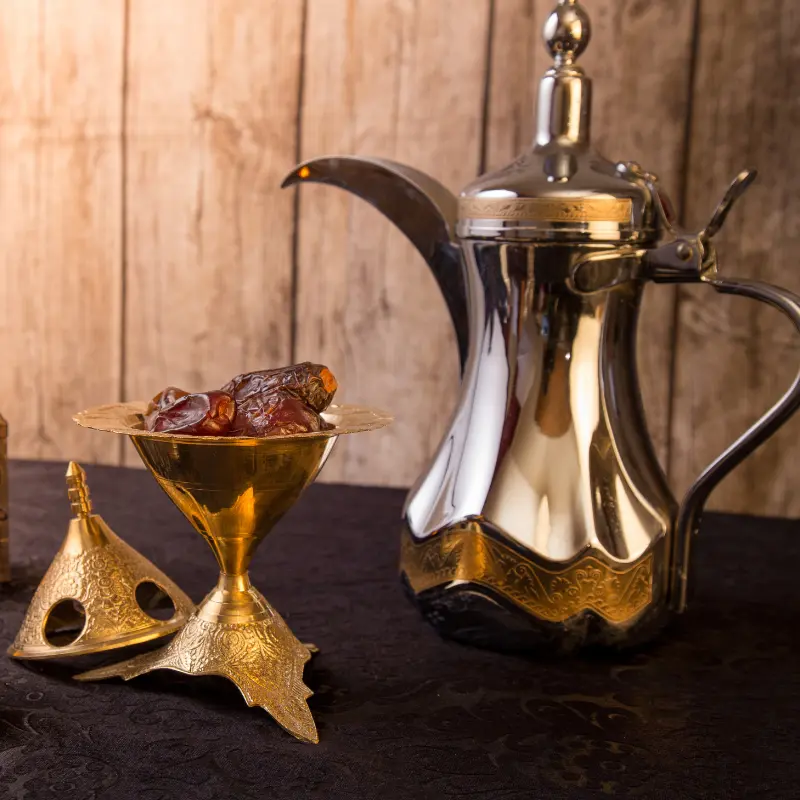
How to Prepare Qahwa
Preparing Qahwa, also known as Arabic coffee, is an art form that carefully extracts its rich flavors and aromatic essence. While regional variations and family recipes exist, the fundamental steps to prepare Qahwa remain consistent. Here’s a guide on how to prepare this traditional Middle Eastern beverage:
Ingredients:
- Freshly roasted Arabic coffee beans (light or dark roast, depending on preference)
- Water
- Cardamom pods (optional)
- Other optional spices or flavorings like saffron, rosewater, cloves, or ginger
- Finely ground dates (optional) for sweetness
Equipment:
- Dallah (traditional Arabic coffee pot)
- Fenjals or small coffee cups with no handles
- Heat source (stovetop or fire)
Instructions:
Roasting the Coffee Beans: If you have green, unroasted Arabic coffee beans, you can roast them yourself on a pan or in the oven until they turn the desired shade of brown. Alternatively, you can purchase already roasted Arabic coffee beans.
Grinding the Coffee Beans: Once the coffee beans are roasted, grind them to a medium-coarse consistency. Avoid grinding them too fine as it may lead to over-extraction and bitterness.
Preparing the Dallah: Fill the Dallah with fresh, cold water, ensuring it’s clean and free from any previous coffee residue. The amount of water will depend on the number of cups you wish to serve. A general rule is approximately three cups of water for every two tablespoons of ground coffee.
Adding Coffee and Spices: Add the ground coffee directly to the water in the Dallah. If desired, you can also add a few cardamom pods for a delightful aromatic flavor. You may experiment with other spices like cloves, saffron, ginger, or rosewater, according to your taste preferences.
Brewing the Coffee: Place the Dallah on a heat source, such as a stovetop or fire, and let the coffee slowly come to a boil. It’s essential to keep an eye on the coffee to avoid over-boiling, which may result in a bitter taste.
Pouring the Qahwa: Once the coffee has boiled for about 15-20 minutes, remove it from the heat source. To achieve the characteristic froth, pour the coffee into the cups and then back into the Dallah a few times. This step helps in creating the desired texture.
Serving the Qahwa: Pour the Qahwa into small cups with no handles, known as fenjals. It’s customary to serve only partway, leaving space for multiple servings. Qahwa is traditionally poured while standing, with guests seated.
Enjoying the Qahwa: Qahwa is typically served alongside dates, dried fruits, or other sweets to complement its flavors. Sip the Qahwa slowly and savor the rich taste and aromatic experience.
Remember, the preparation of Qahwa is not just a recipe; it’s a cultural practice that brings people together, symbolizing hospitality, tradition, and the warmth of Arab gatherings.
The Unique Serving Tradition of Qahwa
Serving Qahwa is an art in itself, with distinct customs and etiquettes. The cups are usually filled only partway, and serving three cups of coffee to each guest is customary. The host, usually standing while the guests are seated, carefully pours the coffee into the cups, with the sound of the pour signaling relaxation for the guests.
Unlike other traditional coffee cultures, Arabic coffee is typically unsweetened (qahwah saada). To balance the bitter flavor, Qahwa is often accompanied by something sweet, such as dates or other desserts, further enhancing the sensory experience.
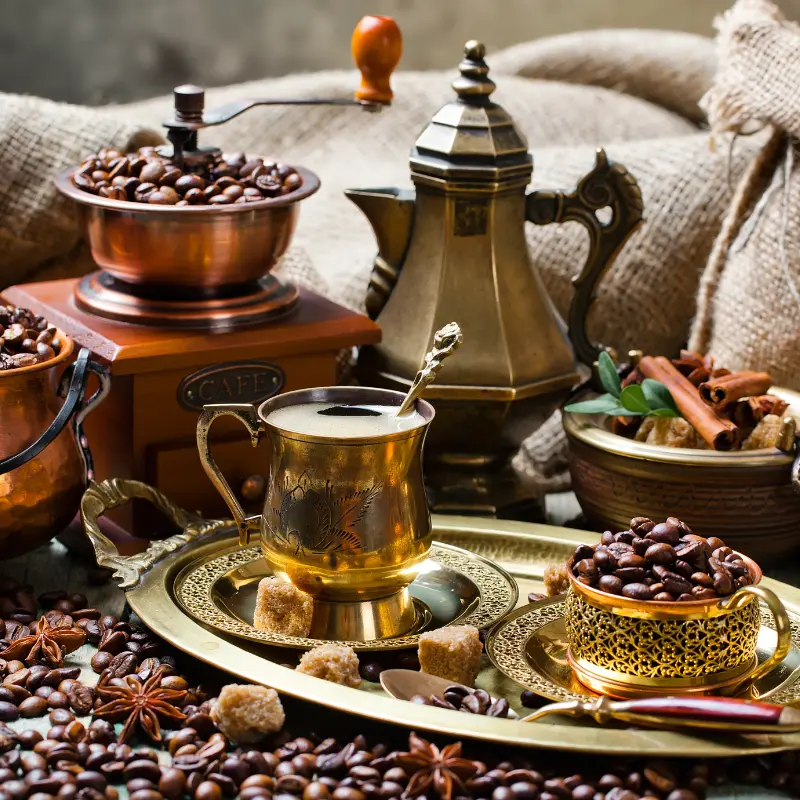
Arabic Coffee Reading
One intriguing aspect of Qahwa culture is Arabic coffee reading, also known as “qirāʾat al-finjān.” Like tea-leaf reading, this practice involves consuming Arabic solid coffee and leaving a small amount of liquid in the cup. The cup is then inverted onto a saucer to allow the liquid to drain and dry up. A skilled reader then interprets the patterns formed by the residue inside the cup, looking for symbols and letters to reveal insights into the drinker’s future or fate.
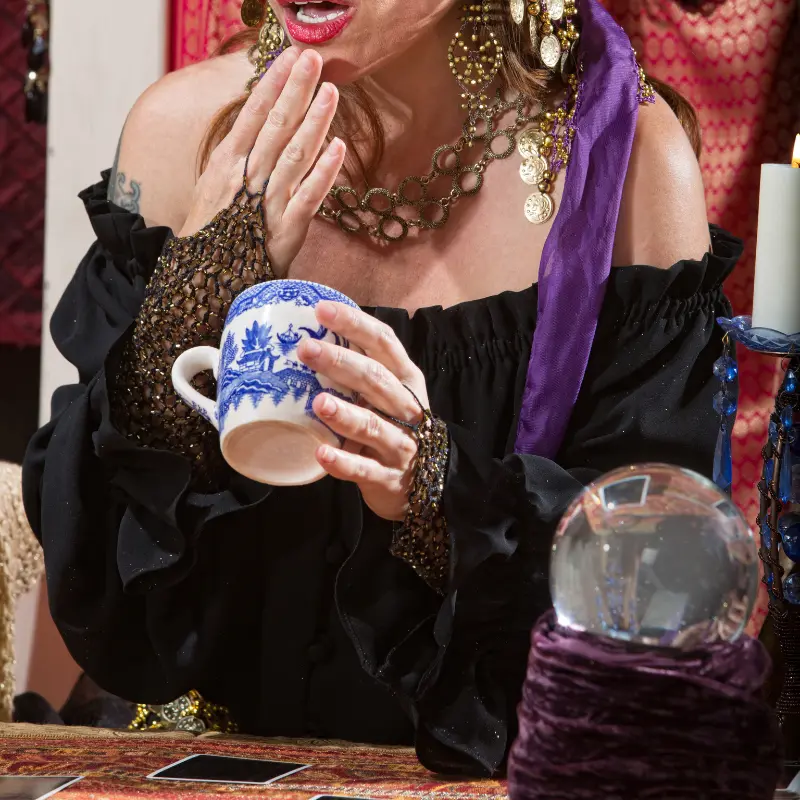
Qahwa at Funerals
Arabic coffee is significant in Arab funerals, where families and extended relatives gather to mourn and commemorate the deceased. Bitter and unsweetened coffee is served, providing solace during difficult times. Separate gatherings are held for men and women, and it is customary to employ presentable women whose sole duty is to serve coffee to the women throughout the day.
Conclusion
Qahwa coffee is more than just a traditional beverage; it represents Arab culture and tradition. Its deep-rooted history, unique preparation, and ceremonial serving make it a symbol of hospitality and community. From its humble beginnings in Ethiopian legends to its widespread acceptance across the Middle East and beyond, Arabic coffee remains an integral aspect of Arab identity. As the aroma of freshly brewed Qahwa continues to waft through Arab households and gatherings, it is cultural significance and time-honored customs ensure that this age-old tradition will continue to be cherished and shared for generations.
